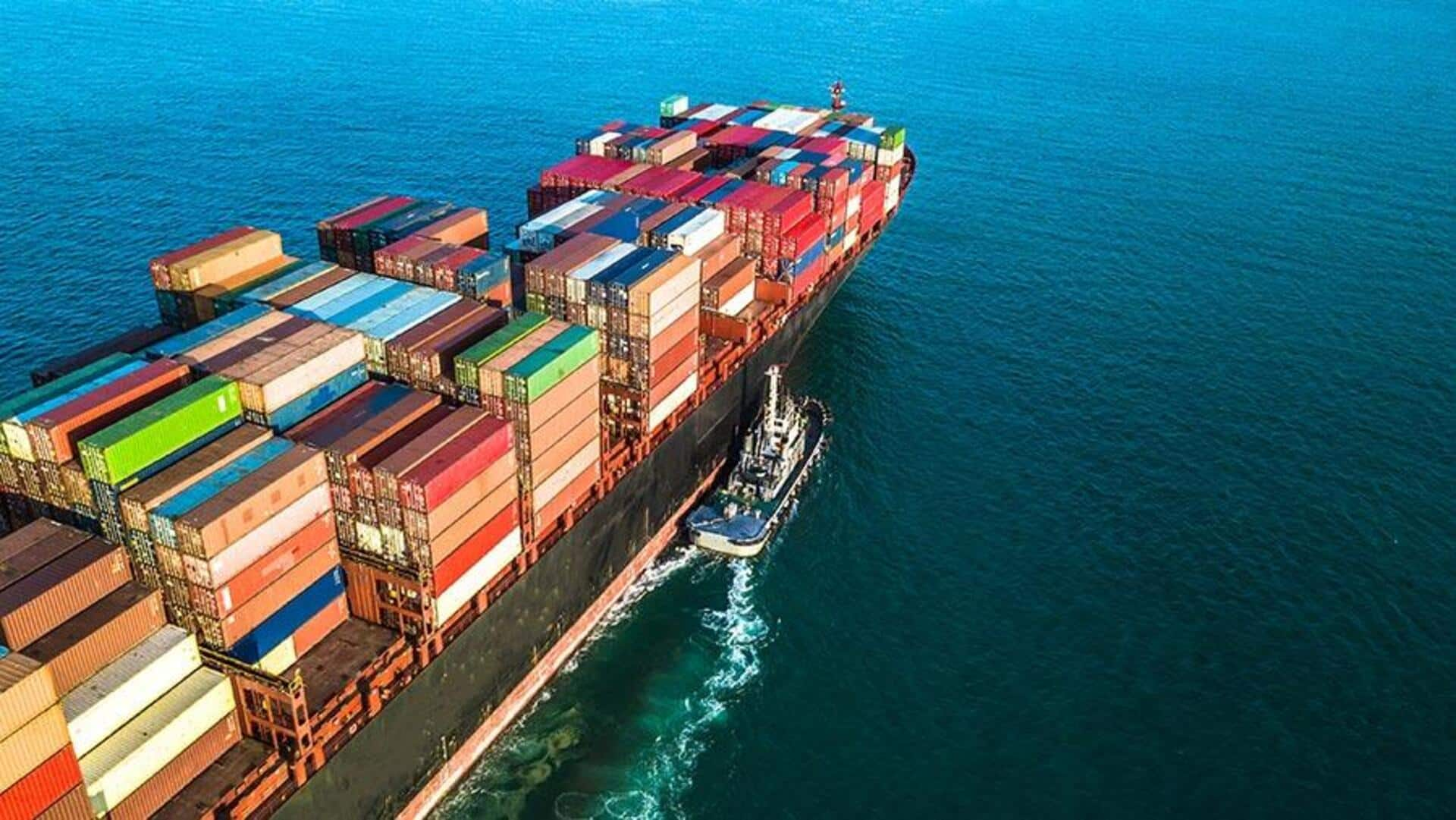
India's merchandise exports fall 12% in October: What's the reason?
What's the story
India's merchandise exports witnessed a significant decline of 11.8% year-on-year in October, amounting to $34.38 billion, according to a report by CRISIL. The fall comes after the US imposed a 50% tariff hike on August 27 this year, affecting exports for the second consecutive month. The decline was broad-based and affected sectors such as petroleum products, gems and jewelry, and core industries.
Sectoral analysis
Sector-wise impact of export decline
The CRISIL report highlights a 10.4% year-on-year fall in petroleum product exports in October, a stark contrast to the 15.1% growth recorded in September. Core exports also witnessed a decline, falling by 10.2% in October compared to a growth rate of 6.1% in September.
Market performance
Exports to US and non-US markets
Merchandise exports to the US fell by 8.6% year-on-year in October, amounting to $6.3 billion. This is an improvement over September's steeper decline of 11.9%. Meanwhile, exports to non-US markets also witnessed a decline of 12.5% year-on-year, reversing the growth trend observed in September where there was a 10.9% increase.
Tariff impact
US tariff cuts offer hope for agricultural exports
On November 16, the US announced a decision to cut tariffs on 254 food items. The move is expected to benefit some agricultural exports from India, particularly tea and spices. This development comes as a silver lining amid the broader decline in merchandise exports due to earlier tariff hikes imposed by the US.
Economic outlook
India's current account deficit remains manageable
Despite the decline in merchandise exports, CRISIL's report suggests that India's current account deficit (CAD) is likely to remain manageable. This is mainly due to a strong services trade, robust remittances, and softer crude prices.